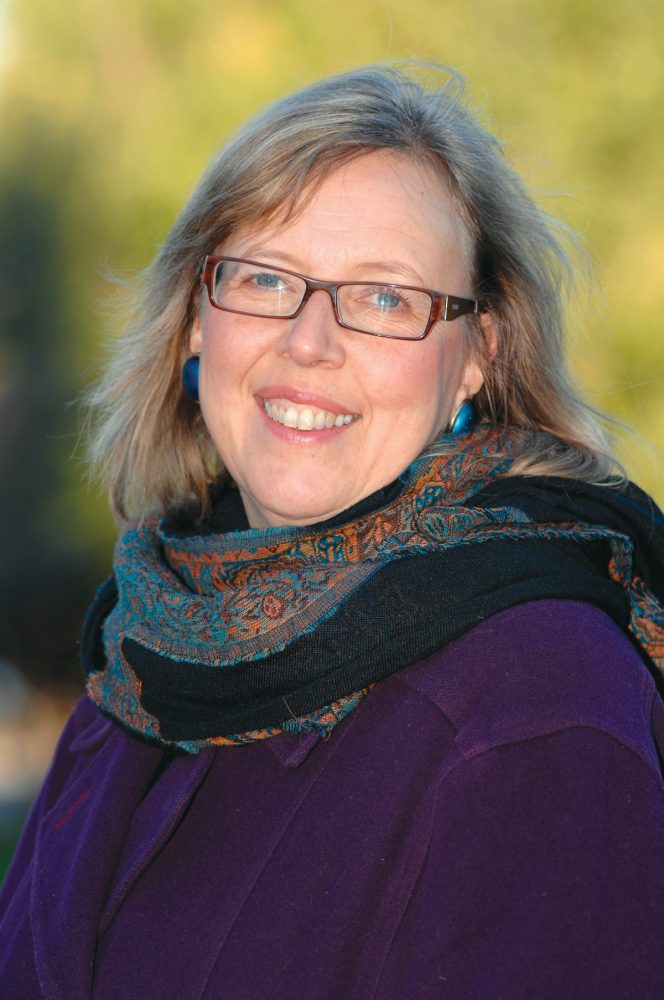Elizabeth May, the leader of Canada’s Green Party, is unflinchingly pro-gay.
A left-leaning environmental activist turned savvy politician, the United States-born May wants to make the party’s environmental agenda relevant to progressive communities at large.
Do you see an opportunity to reach out globally? For instance, I notice the Green Party is on Facebook.
Absolutely, I’ll be attending the Global Greens gathering in São Paulo, Brazil, in the spring. Around the world, people are looking at Canada and the growth of the Green Party here with real excitement, and they are very encouraged that we will be winning seats in Parliament in the next election.
Do you see the Green Movement as connected to larger struggles for human rights and gender equality?
“Green” is rock-solid and embedded in principles of human rights, social justice, world peace, environmental sustainability and lesbian, gay, bisexual, transgendered and transsexual rights. We were the first party in Canada whose leader was openly gay. The document “Vision Green” on our website discusses, in detail, these issues. I think curve readers will be very encouraged.
You’ve been described as one of a handful of political leaders to unequivocally support gay rights. Do you feel like your party is marked as the “gay lobby” because of this support?
I’d be discouraged if it was the case that I was the only political leader who felt this strong commitment. Clearly Mr. [Stephen] Harper’s party [Conservative Party of Canada] has a history of intolerance [and] homophobia. It is true that institutionally and through our whole being—to us—[gay rights are] not controversial. It is distressing that the issues are still discussed as if they were controversial.
It does not bear the label “controversial.” It’s our human right. It’s respect for our sisters and brothers and friends and neighbors.
What do you say to ecological activists who are or may one day be Green Party supporters?
Our time has come. We have name recognition and the firm treatment of social justice, the willingness to use market mechanisms to achieve Kyoto targets to reduce greenhouse gases. We are a party that transcends the old political and ideological divides of the 19th and 20th centuries. [Green pioneer] Petra Kelly said we are the “anti-party party.” Greens will always share the power…we won’t hoard. In some ways it’s easy to be discouraged because, globally, progress is so slow on the critical issues of our time. Having a prime minister like Stephen Harper is—for people who care about the future of the planet—as horribly compromising and distressing as it was for people in the U.S. with George Bush as president. [But] change is coming.
You were born in Connecticut, and even as a child you were involved politically. How did that time affect you?
My mom was very active in the movement against nuclear weapons testing. I participated as a very young child in press conferences and meetings with my mother and then going down to Washington [D.C.] to lobby for an end to NWT [Uranium Corporation]. My family was very involved in the civil rights movement and anti-war movement. Petra Kelly, who founded the German Greens, was one of my heroes. Petra had a formative period in the States as well, and while I was working for Eugene McCarthy in ’68 she was working for Bobby Kennedy.
The ’60s were an incredibly important time. Recognizing that organizing, lobbying, demonstrating, exerting people power, speaking truth to power—all slogans in the ’60s—formed my political consciousness. I knew very clearly that democracies hang by a thread—that you must work very hard to use the tools of a democracy effectively, and that you don’t take anything for granted.
